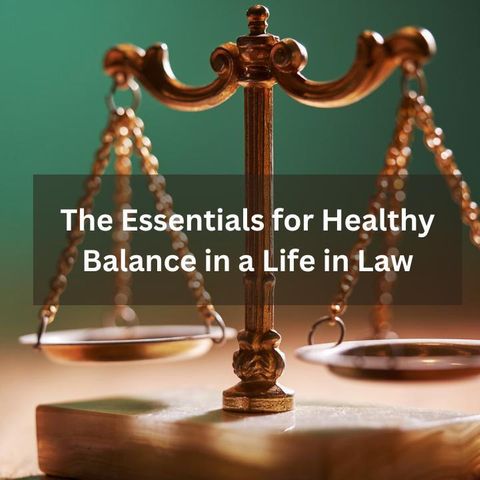Blog
Recent Updates
Washington's Laws on NDAs: Can an Employer Silence You About Harassment?
For years, non-disclosure agreements (NDAs) were tools used by some employers to conceal toxic work environments and silence victims of harassment. Employees often felt trapped, believing they signed away their right to speak up. Fortunately, the legal landscape in Washington State has shifted significantly, prioritizing transparency and protecting workers who have experienced workplace misconduct.
moreUnderstanding the Statute of Limitations for Sexual Assault in Washington
The decision to seek legal justice after experiencing sexual assault is a profound step toward healing and accountability. In Washington, survivors have specific legal pathways to hold perpetrators and negligent institutions responsible, but these paths are often governed by strict timeframes known as the statute of limitations. Navigating these laws requires both compassion and precise legal expertise.
moreRetaliation Under Washington Law
James Kytle
Understanding Retaliation Claims ln Washington State
If you spoke up at work about discrimination or illegal practices and then your employer punished you,you may have experienced retaliation.
Washington law protects employee from th.is kind of treatment. Here's what you need to know.
What is retaliation?
Retaliation happens when your employer takes negative action against you because you reporteddiscrimination, unsafe practices, harassment, or other unlawful behavior.
Examples of retaliation include:
• Getting fired or demoted after you complain.
• Having your hours cut or being reassigned to worse shifts.
• Being left out of meetings or opportunities for advancement.
Why is Retaliation Illegal?
·The Washington Law Against Discrimination (WLAD) makes it illegal for employers to punish workers forstanding up for their rights or the rights of others. The idea is simple: if people fear losing their jobs forspeaking up, discrimination and unlawful behavior will never come to light.
Who enforces the law?
You can file with the Washington Human Rights Commission or the Equal Employment Opportunity Commission (EEOC). But if you have a significant case of retaliation you should talk to an attorney assoon as possible, because there are strict time limits on filing administrative claims or filing suit.
moreNavigating Your Rights After a Wrongful Termination
Losing a job is difficult, but it can be especially confusing and stressful if you believe your termination was wrongful. In Washington State, while most employment is "at-will," meaning an employer can terminate an employee at any time for any legal reason, there are important exceptions. If you were fired due to discrimination, retaliation, or in violation of a contract, you may have a wrongful termination case. Understanding your rights is the first step toward seeking justice and recovering lost wages and other damages.
moreUnderstanding Personal Injury Law: What You Need to Know
Jim Kytle
Understanding Personal Injury Law: What You Need to Know
Accidents can happen in an instant, but the effects often last much longer. From car
crashes to slip-and-fall incidents, an unexpected injury can lead to mounting medical
bills, missed time from work, and major disruptions in your daily life. If your injury was
caused by someone else’s carelessness or wrongdoing, personal injury law may give you
a path to compensation.
In this article, we’ll walk you through the basics of personal injury cases, what
“negligence” really means, the types of compensation you may be entitled to, and why
working with an attorney can make a big difference.
What Is a Personal Injury Case?
A personal injury case arises when a person is harmed because another individual,
business, or entity failed to act responsibly. Some common examples include:
Car Accidents – Whether caused by distracted driving, speeding, or failing to obey
traffic laws, crashes often result in significant medical expenses, vehicle damage, and
lost wages.
Slip and Fall Accidents – Property owners have a duty to keep their premises
reasonably safe. If you slip on a wet floor in a store or trip over a hazard that should
moreThe Essentials for Healthy Balance in a Life in Law
James Kytle
The practice of law is known for its demanding pace, which leads many lawyers to a lack of work-life balance. However, maintaining a healthy equilibrium between professional commitments and personal well-being is crucial to a lawyer’s ability to provide quality legal assistance to clients.
Lawyers often let their professional responsibilities significantly intrude on their private lives. This is may be motivated by genuine concern for their clients’ interests, but in reality the sacrifice can do more harm than good. A lawyer who is hampered by physical or mental exhaustion is not as capable of effective performance. Here are some practical courses of action for lawyers to achieve a proper work-life balance:
Prioritize self-care — This includes making exercise a priority, keeping to a regular sleep schedule, following a healthy diet and engaging in enjoyable diversions when possible.
Establish boundaries — A lawyer should define working hours and try to stick to them. Avoid bringing work home whenever possible and allocate quality time for family, friends, hobbies and personal interests. Learn to say no to excessive work demands or unrealistic deadlines.
Build a support network — Lawyers often tend to isolate themselves in their work, which puts more stress on them. Surround yourself with colleagues, friends and family members who understand your profession’s demands and support your goals. Seek mentorship or join professional organizations that provide a platform for networking and guidance.
moreA Guide to the Washington State Whistleblower Act
Speaking up about workplace misconduct is a courageous act that serves the public interest and promotes government accountability. Understanding the nuances of the Washington State Whistleblower Act is essential for anyone witnessing improper actions within state agencies
more




